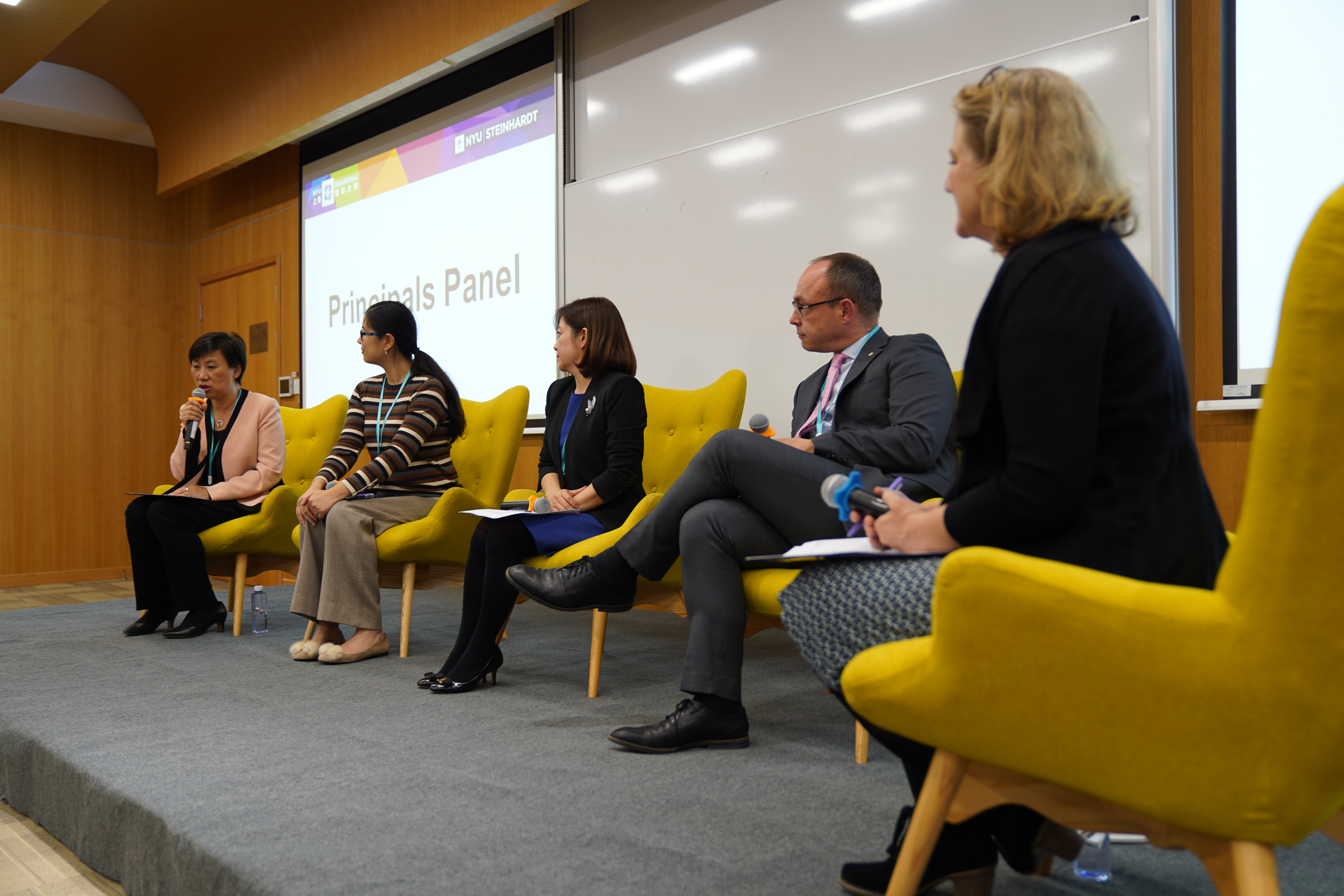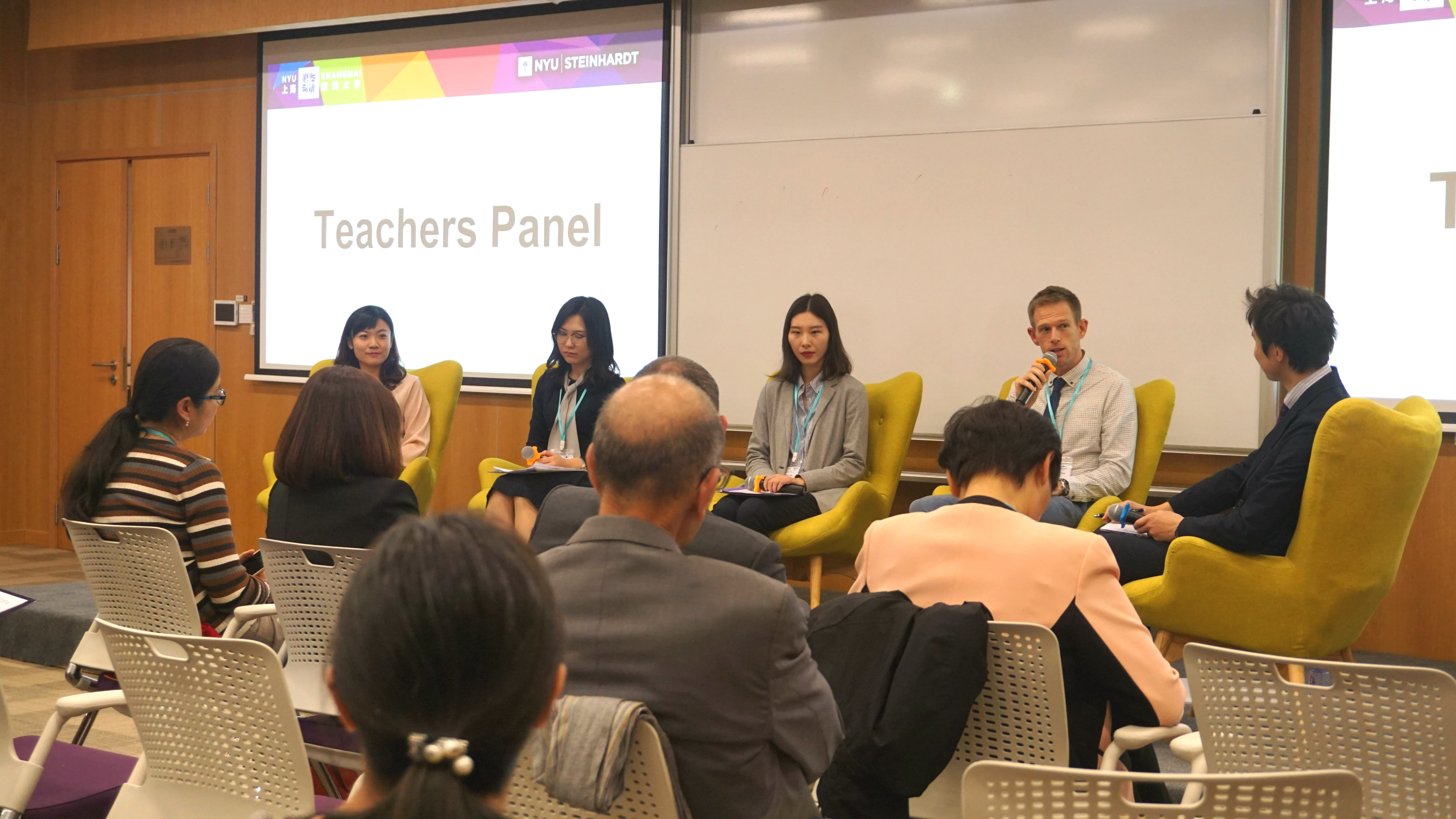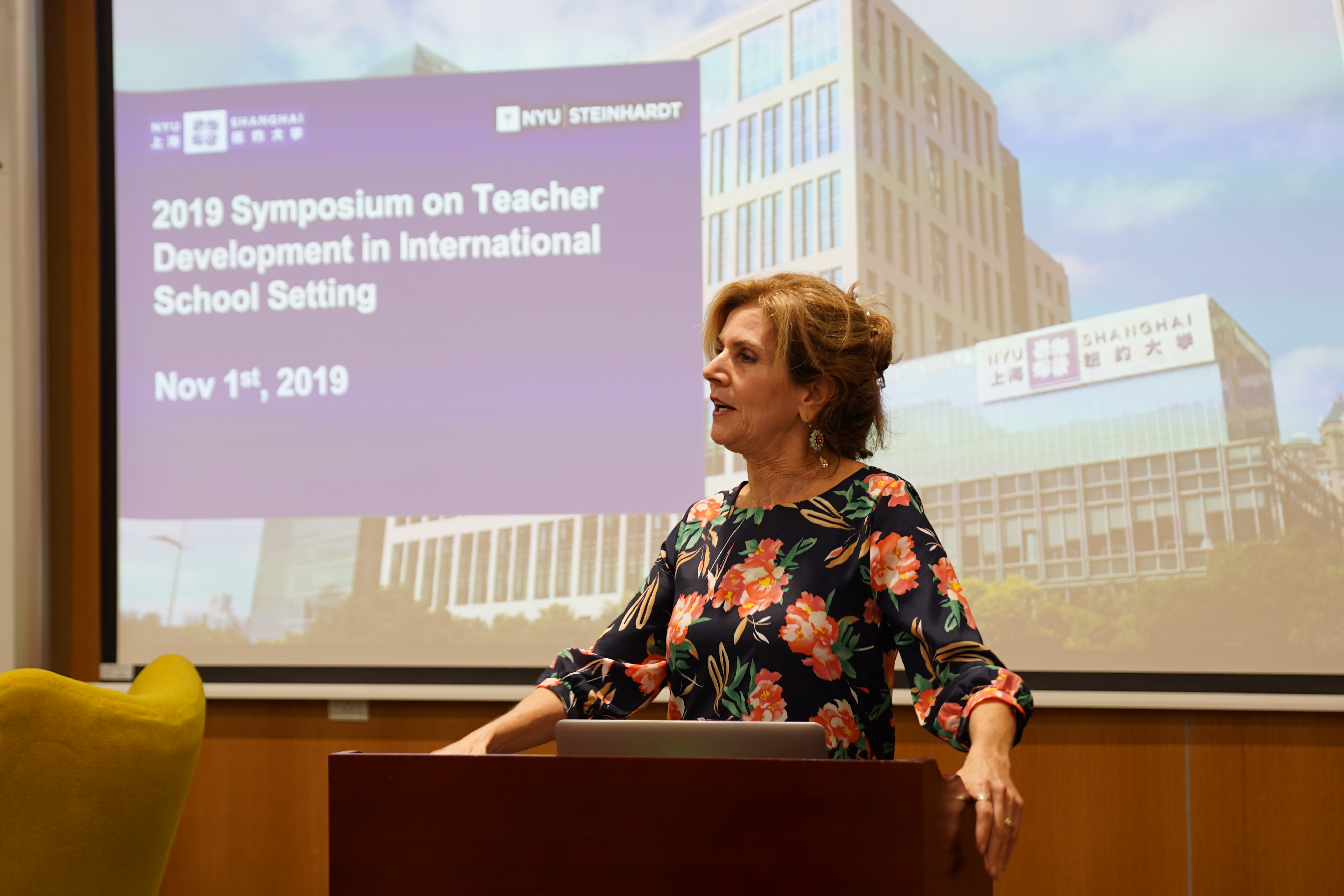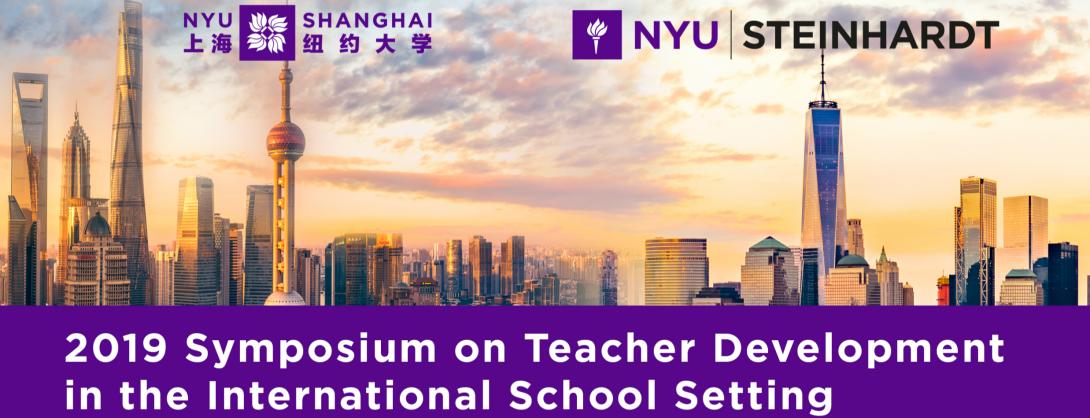Teachers, school principals, staff development specialists from across China joined deans and faculty from NYU Steinhardt and NYU Shanghai on campus November 1 for the NYU Steinhardt-NYU Shanghai Joint MA Teaching English as a Second Language (TESOL) program‘s inaugural Symposium. This year’s Symposium focused on the professional development of teachers at international schools, and drew over 70 participants from local international schools and public schools with international divisions.
Professor Kentei Takaya, Director of the NYU Steinhardt-NYU Shanghai Joint MA TESOL program, says the program hopes to promote stronger connections among Shanghai English teachers by hosting a series of events and exchanges at NYU Shanghai.
“NYU Shanghai is the perfect environment for fostering a community and dialogue because our day-to-day involves so much cross-cultural communication and learning,” said Takaya. “So we intend to build up this campus as a hub for the TESOL community in Shanghai and beyond.”

(From left) Zhang Jie, Principal of Shanghai Hongwen School,, Lou Jiaji, Director of Fudan International School, Lisa Kan, Principal of Kunshan Economic and Technical Development Zone International School, David Ingram, Head of College, Dulwich College Shanghai Puxi, with Robin Harvey, Co-director of the MA TESOL, NYU Shanghai/NYU Steinhardt moderating the panel.
The Symposium featured two panels -- a Principals’ Panel and a Teachers’ Panel. The Principals’ Panel invited school administrators from international schools around China to share insights on challenges facing their schools and their approaches to solving these issues.
At the Principals’ Panel, it became clear that one of the most salient issues facing both teachers and administrators was the complexity of navigating diverse cultural backgrounds.
“For example, international teachers don’t usually assign large amounts of homework and put pressure on students, while local families tend to view this practice as a lax homework policy,” said Zhang Jie, Principal of Shanghai Hongwen School. “As administrators, our role is to explain the teacher’s methods to parents while showing teachers how to respond to local parents’ needs.”
Language was another issue raised at the Symposium. Due to the rise of globalization, international schools are seeing more multilingual students. As a result, schools are facing the challenge of teaching students with differing levels of English proficiency, and balancing their first and additional languages.
David Ingram, Head of College at Dulwich College Shanghai Puxi said “some Chinese parents don’t like teachers to speak Chinese during non-class time. They think too much exposure to Chinese may hinder their children from progressing in English. But actually, only when people become more literate in their mother language can they be more proficient in additional languages.”
Lisa Kan, Principal of the Kunshan Economic and Technical Development Zone International School, said her school approached the issue by “assign[ing] students to different English levels to provide the most suitable training. We also provide various clubs so that students can have more chances to speak with native speakers and be immersed in an English-speaking environment. During the break, they...speak their native languages.”
The evening also saw many familiar faces returning to the NYU Shanghai campus, as four alumni and current students of NYU Shanghai and NYU Steinhardt programs who are now teaching at international schools spoke on the Teachers’ Panel.

The returning teachers agreed with the principals, saying that cultural complexity was indeed a big challenge. Yang Shining, an NYU Steinhardt alum currently teaching at Dulwich College Shanghai Pudong, mentioned that students from some East Asian countries typically begin preparing for advanced examinations much earlier when compared to students from other parts of the world. Therefore, she said, teachers should be able to differentiate their strategies and provide customized support to serve individual needs.
They also spoke about their schools’ different approaches to teacher development. Yang Shining said that her school provided a leadership training program to teachers. John Anderson, a current TESOL student at NYU Shanghai, spoke about the “internal experts” initiative at his school -- SMIC Private School -- where teachers hold workshops for their colleagues. “It’s a way to gain knowledge while building closer relationships with your colleagues,” said Anderson.
The teachers closed their panel by sharing their experiences in the NYU Steinhardt-NYU Shanghai Joint MA TESOL program. Shirley Xu said that her courses always placed an emphasis on applying learning to practice. While Ling Mei said her greatest takeaway from the program was confidence. “I used to be shy and quiet, but we were always encouraged to express our ideas and practice our teaching methods,” said Ling. “Over time, I became more confident when speaking in public. The program helped me step out of my comfort zone.”

NYU Steinhardt Associate Dean for Global Affairs and Clinical Professor of Nutrition Lisa Sasson makes welcome remarks at the Symposium.
Dean and faculty of NYU Steinhardt and NYU Shanghai also spoke at the Symposium. They included NYU Steinhardt Associate Dean for Global Affairs and Clinical Professor of Nutrition, Lisa Sasson, Associate Dean of Graduate and Advanced Education at NYU Shanghai Eric Mao, TESOL Professor and Senior Advisor to Deans of China Development, Frank Tang, and Special Advisor for Policy, Strategy, and Innovation at NYU, Ted Magder.


